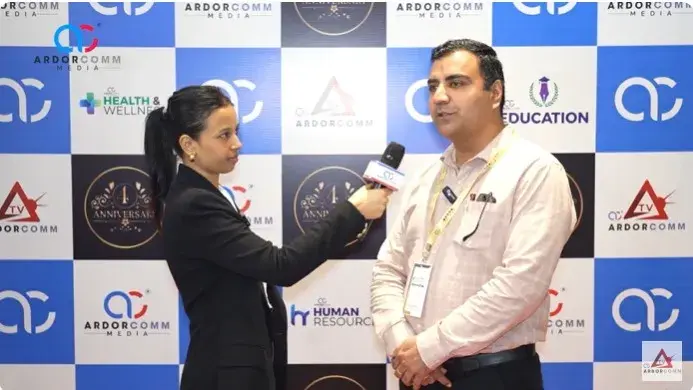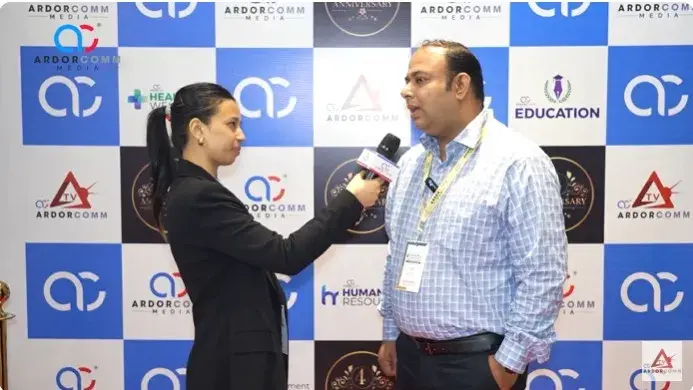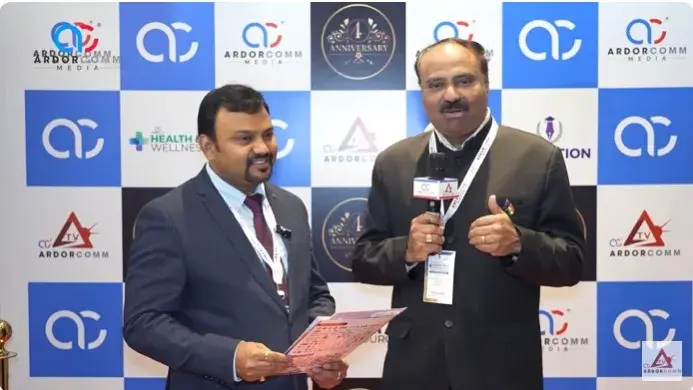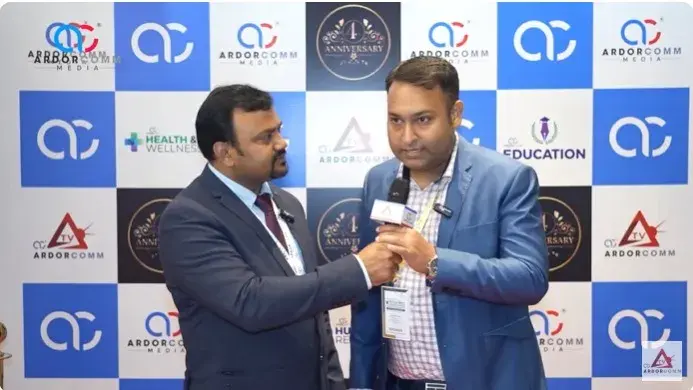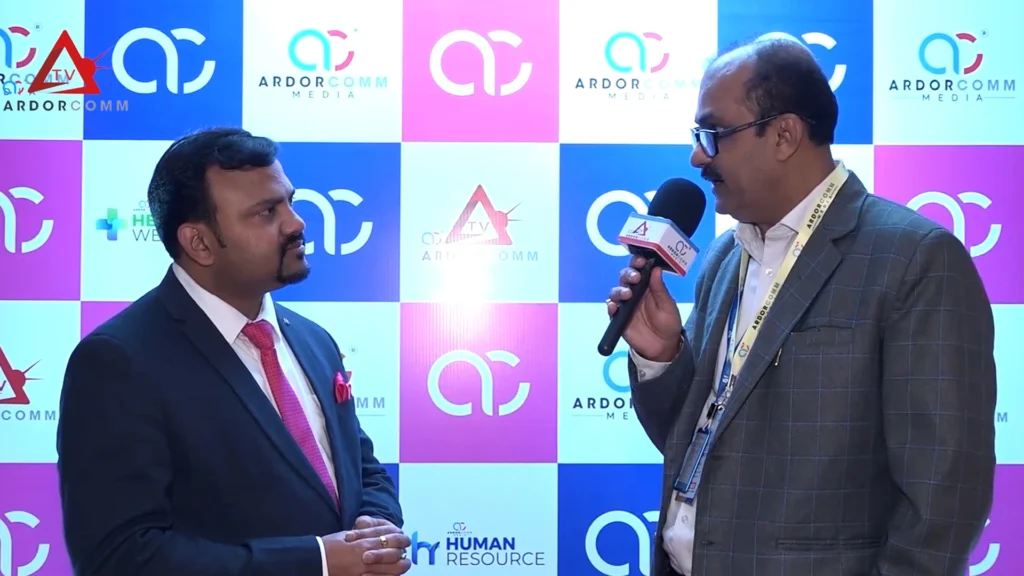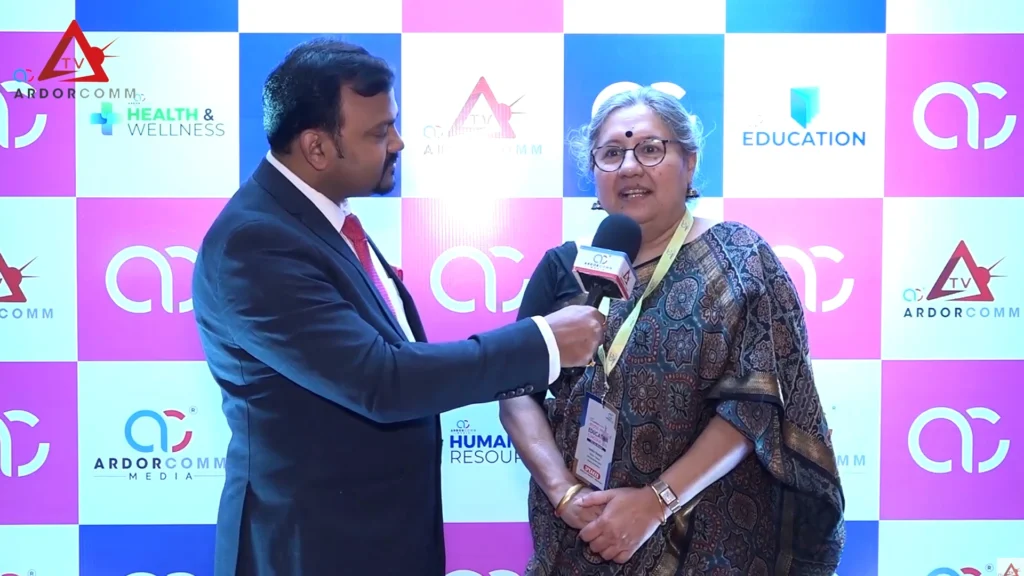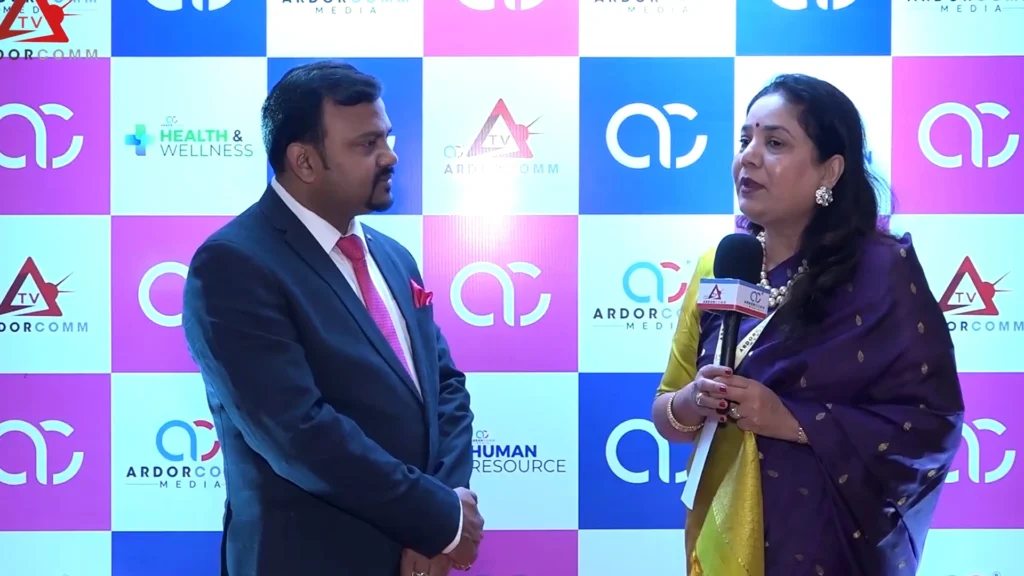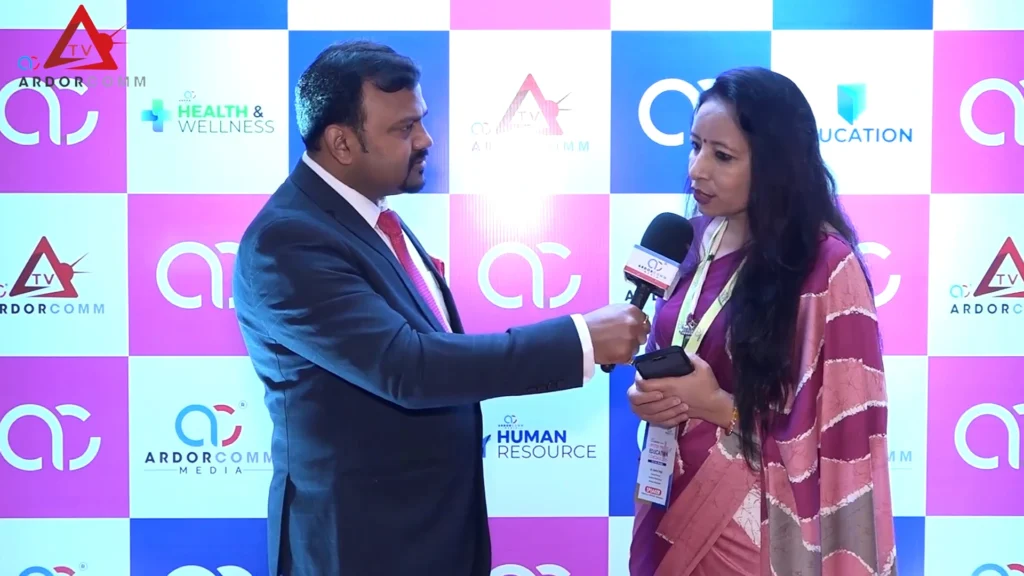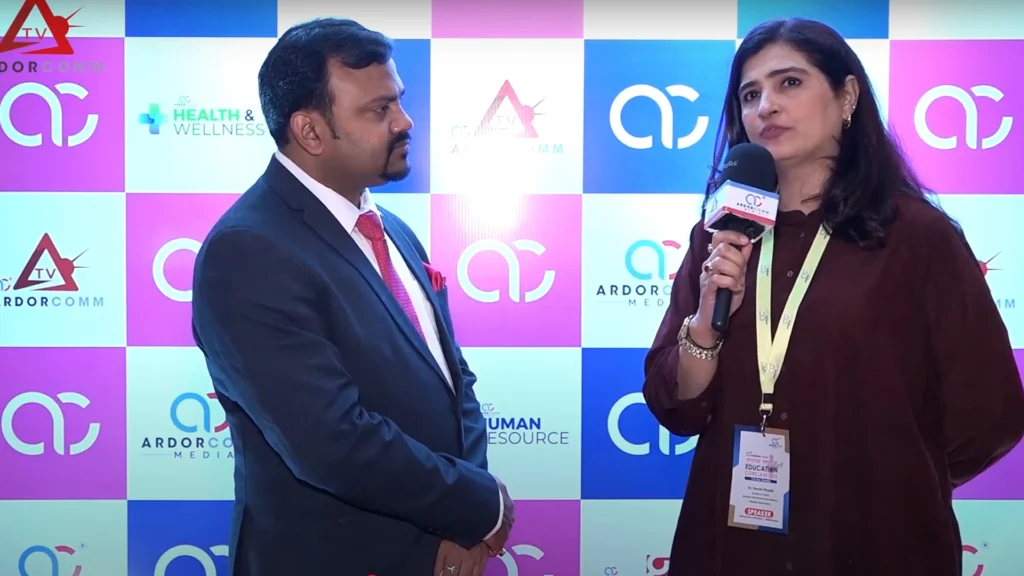We have a very senior academician with us, Prof. Dr. Shankar Ramamoorthy. He’s the Vice Chancellor of one of the finest universities of Uttarakhand, Jigyasa University, Dehradun. We welcome you to today’s event. Welcome and thank you very much. I think this has been a very wonderful journey, Mr. Anand, and I am pretty much honored to be part of the initiative that Mr. Anand has started—the ArdorComm Media. I think Ardor’s ensemble of putting all the people together in terms of industry and academia has been a very wonderful thing. We are enjoying this whole experience since morning. We’ve been hearing from all the educational leaders, we’ve been hearing from academicians, we’ve been hearing from industry experts—I think this has been a very wonderful journey. Personally, I must say that I feel that I’m a learner today. And after spending 35 years in the industry and academia, when I come back here, I say that what Mr. Anand is doing is very important because what we are teaching is something that is happening here. And we are going to factor the learnings from today and see that the curriculum is getting more and more enriched. I’ve been a very strong supporter of the job description model. In a job description model, I go to Naukri.com, I go to Shine, I go to Indeed, I see what are the job profiles. I tell my people to look at the job profiles, make curriculum, and make sure that you backfill all the knowledge that you have—from the industry to academia. Personally, spending in industry for 28 odd years in different cities like Bangalore, Mumbai, Pune—when I came back to academics, I really found that a lot has to be done here. And forums like this are a very, very enjoying experience. Thank you very much, Mr. Anand, for this. Where do smart skills and a smarter workforce play a role? Do you really feel there is a gap here, and how should we overcome it? Absolutely. There is a lot of—a very big hiatus, a very big gap persists between the rubber and the ground. And the rubber has to hit the ground at the end of the day. So whatever rubber—or the students—we generate, they are working hard, but they’re not smart. They’re not industry-ready. They’re half-baked. And I think the moment has arrived that we have to make sure that we have industry-ready professionals. So it’s going to be a very different way of teaching them. It’s not going to be pedagogy—it has to be andragogy. It has to be more about micro-teaching, it has to be peer learning, it has to be activity-based learning. I think the formats—even of our benches in the classroom—have to undergo a sea change and a big overhaul. We need to have, you know, places where a conference-like setup is there, people think, people share, and people are able to give back to the class. Things like flipped learning, things like new forms of pedagogy have to come—and that’s the new normal future. You very well said that the infrastructure of the school and university campuses also has to be changed. Do you feel there should be budget allocation or investment in infrastructure to be future-ready and digitalized? Exactly, I think when we start a school or a university or an education system, the most important thing they say is—like the six M’s of management—Men, Money, Material, Methods, Market, and Motivation. I think apart from having the right faculty (Men) and the Money, the most important thing is the Material. When I say material, I’m talking about infrastructure. I’m talking about digital infrastructure—right from smart classrooms, right from smart learning, right from everything. We need a good ERP, a good LMS, a good recruitment management system, faculty management system. I think we have to make sure that educational institutions’ workflow dynamics are becoming more optimized, more agile, and faster. How is Jigyasa University growing, and what’s the vision of Jigyasa University? I am almost seven months old in Jigyasa University. I’m from Galgotias and Sharda before. So when I came to this university, I found that there’s a lot of things to be done. This university is trying to go up slowly in terms of its presence, visibility, and recognition. But the most important thing Jigyasa University has to do is—it has to make sure, apart from building a brand, it has to do the fundamental thing well: what happens in those 50 minutes of the class. I think that’s exactly where the lights, action, and the camera is. If you’re able to do that job well—the teaching and learning—I’ve told everyone, all will fall in place. That’s why I’m hiring the best faculty, I’m making sure that I have the best people, I pay the best possible remuneration to my faculty. And more important is—I’m developing a passion in the real teacher who has come to be an educator and not just for a job. So I’m telling them—I’m going to hire people who don’t want to do a job with us. And we really handpick students and faculty both for the same. I’m very pleased to share with you that we recently completed our fourth year of existence—this is our fourth anniversary as a media group. Any message or good wishes you’d like to give to ArdorComm Media Group? I think ArdorComm Media, in its last four years, has done a very wonderful job. I was going through your website before coming here and before I was selected to be a speaker here. I think in the last four years, you have been evolving continuously. And I have seen that the type of people you bring—right from the government, right from the policymakers, right from the academicians—I think the cast, ensemble, and the galaxy of people you bring is very perfect. And I wish all the best and good luck for the ArdorComm Media Group. Lots of

